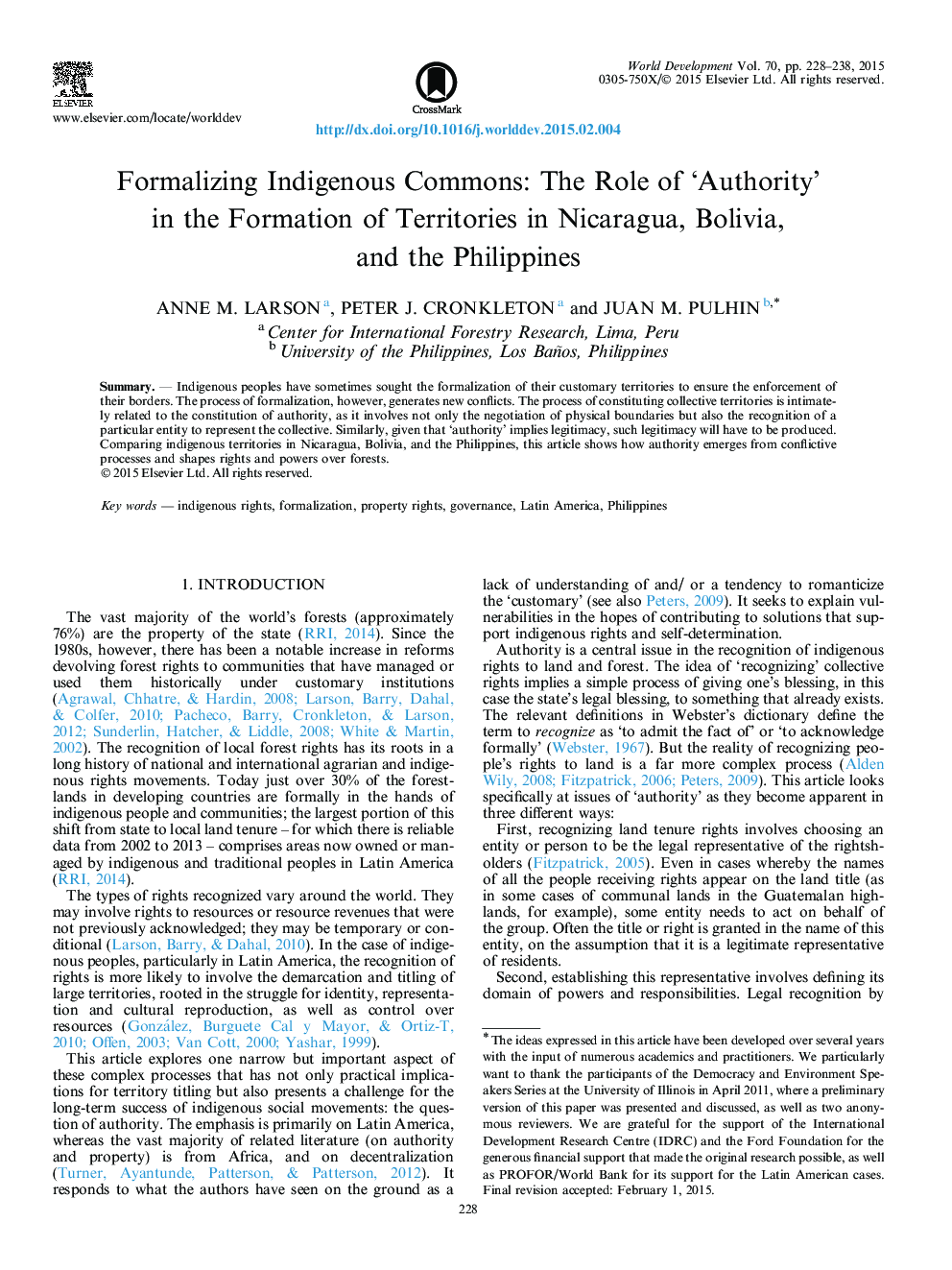| Article ID | Journal | Published Year | Pages | File Type |
|---|---|---|---|---|
| 7393905 | World Development | 2015 | 11 Pages |
Abstract
Indigenous peoples have sometimes sought the formalization of their customary territories to ensure the enforcement of their borders. The process of formalization, however, generates new conflicts. The process of constituting collective territories is intimately related to the constitution of authority, as it involves not only the negotiation of physical boundaries but also the recognition of a particular entity to represent the collective. Similarly, given that 'authority' implies legitimacy, such legitimacy will have to be produced. Comparing indigenous territories in Nicaragua, Bolivia, and the Philippines, this article shows how authority emerges from conflictive processes and shapes rights and powers over forests.
Related Topics
Social Sciences and Humanities
Economics, Econometrics and Finance
Economics and Econometrics
Authors
Anne M. Larson, Peter J. Cronkleton, Juan M. Pulhin,
